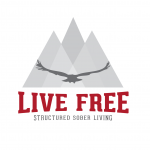Knowing common signs of drug abuse and addiction can help you get closer to finding out whether one of your friends, relatives, or loved ones may need treatment at a drug rehab center. The latest report from SAMHSA states that in 2014, 16.3 million adults in the U.S. had an alcohol use disorder and 6.2 million had an illicit drug use disorder. However, these numbers are likely to be much higher given many people suffer from addiction in silence and don’t get help.
Here are signs and symptoms to look out for if you think someone close to you may be suffering from drug dependence and addiction.
Why Does Someone Abuse Drugs?
People abuse drugs and alcohol for many reasons, such as to escape stress, relieve pain, have fun, or to perform better at work or school. Some people abuse drugs because they grew up with parents who used drugs, while others may abuse drugs because they became unintentionally addicted to drugs prescribed by their doctors.
Drug abuse and addiction always have one or more underlying root causes. If you suspect a loved one may be using drugs, consider the possible underlying reasons they may be doing so. Are they under a lot of stress at work or school? Are they suffering from a mental health disorder such as depression or PTSD? Have they recently experienced trauma, or started spending time with new friends or partners? The answers to questions such as these can often provide you with more insight as to whether a person may be abusing drugs and alcohol.
Physical Signs of Drug Abuse and Addiction
Each type of substance produces its own unique effects. Opioids are painkillers that reduce the sensation of pain. Sedatives like alcohol and benzodiazepines slow down the central nervous system to cause relaxation and drowsiness, while stimulants like cocaine, methamphetamine, and ADHD medications speed up the central nervous system to increase alertness and energy. All of these substances also cause euphoria, which is why they are commonly abused.
Physical signs of drug abuse include, but are not limited to:
- Slurred speech
- Poor balance and coordination
- Change in pupil size (dilated or constricted pupils)
- Nausea and vomiting
- Changes in sleeping behaviors
- Changes in eating patterns
- Changes in breathing patterns (rapid breathing or slowed breathing)
- Changes in energy levels
- Twitching
- Tremors or shaking
- Sudden mood swings
- Decline in personal hygiene
- Irritability
- Anxiety
- Depression
- Aggression
Behavioral Signs and Symptoms of Drug Abuse and Addiction
Those who struggle with drug abuse and addiction usually exhibit and share the same behaviors regardless of the substance being used. The National Institute on Drug Abuse defines addiction as a mental illness and complex brain disorder characterized by compulsive drug seeking and drug use despite harmful consequences.
Behavioral signs of drug abuse include, but are not limited to:
- Devoting lots of time to obtaining the drug, using the drug, and recovering from the drug’s effects (such as missing work or school to buy drugs)
- Continuing to use drugs even though it’s causing problems at work, school, or home
- Loss of interest in favorite or long-held hobbies and activities (such as going to the gym, playing sports, cooking, painting)
- Continuing to use drugs even though it’s causing or worsening certain health problems (such as gum disease, liver disease, asthma)
- Using higher amounts of drugs or alcohol over time due to increased tolerance
- Using drugs to prevent the onset of withdrawal symptoms, or experiencing withdrawal symptoms when drug use is abruptly stopped
Getting Help for Addiction From Live Free Structured Sober Living
Drug abuse and addiction can be safely and effectively treated with a customized drug rehab program at Live Free Sober Structured Sober Living in Manchester, New Hampshire. Live Free SSL uses customized treatment, counseling, behavioral therapy, and a wide range of other evidence-based treatments to help people achieve long-term recovery from addiction.
Contact us today at 603-505-8365 to learn more about our detox, inpatient residential rehab programs, and evidence-based therapies for drug abuse and addiction.



Recent Comments